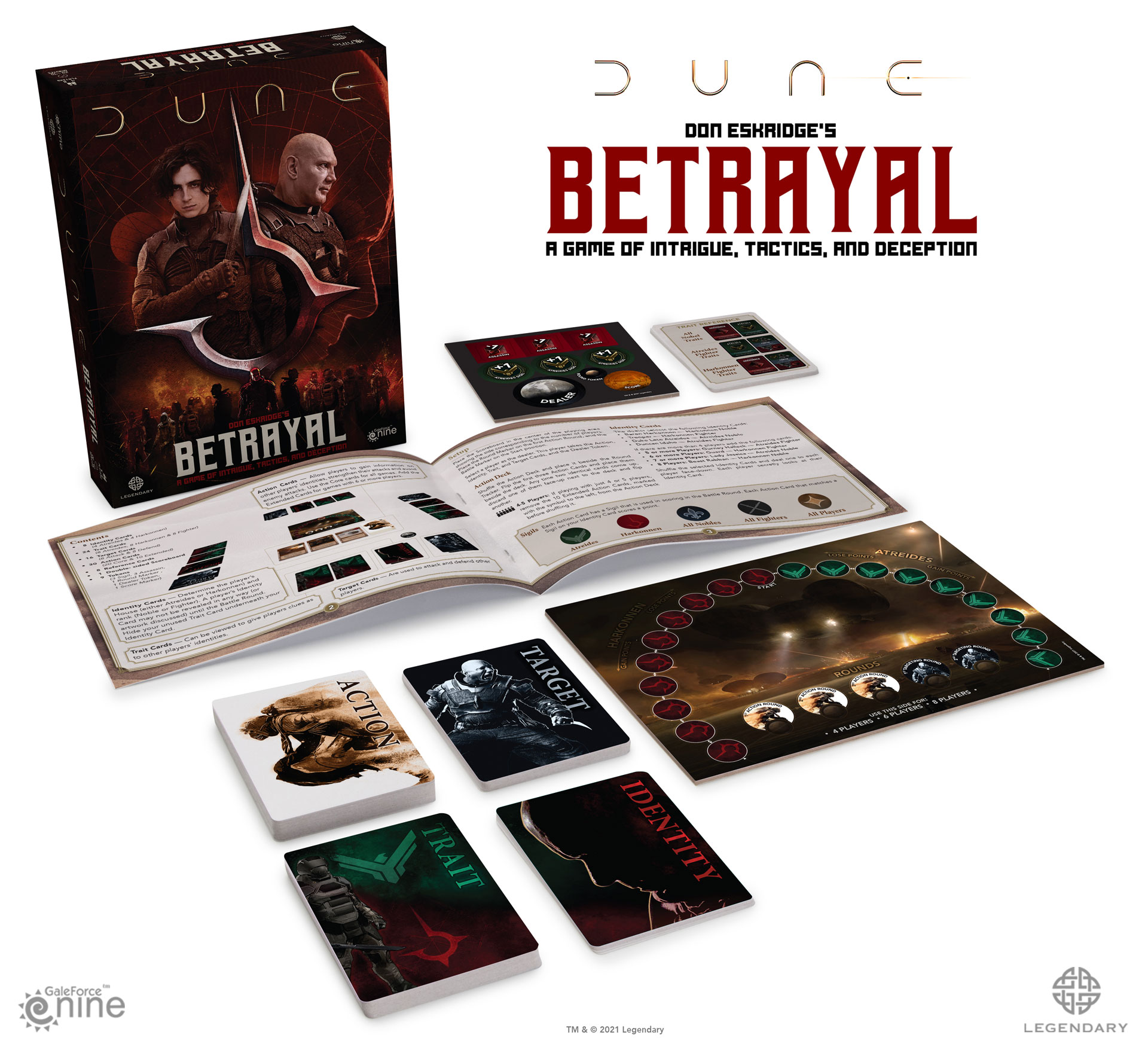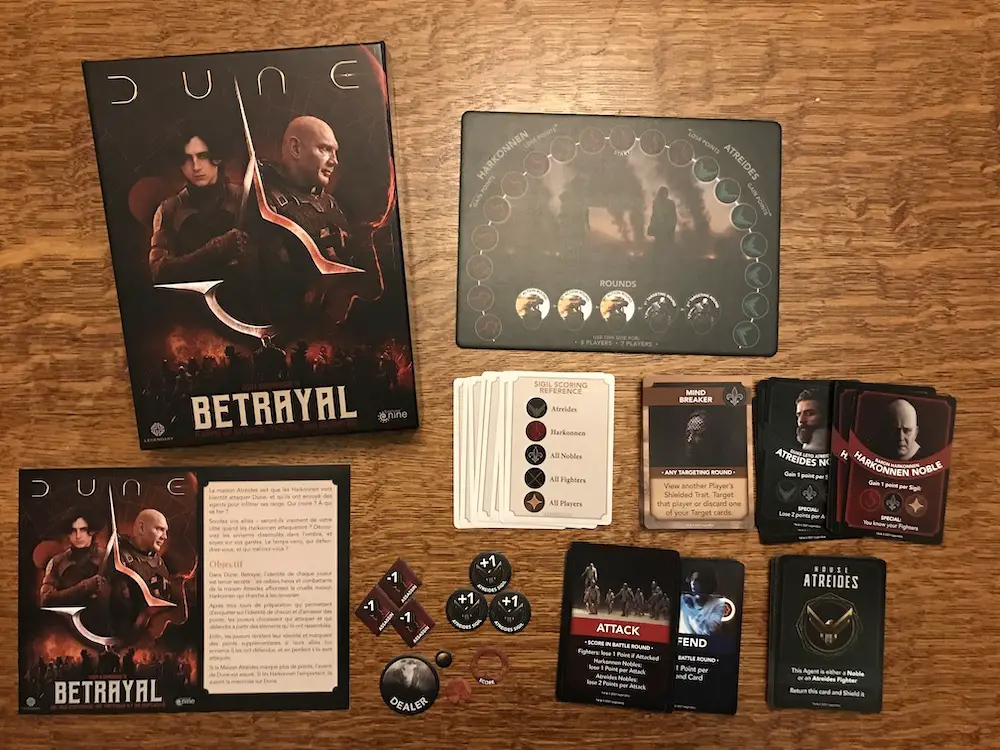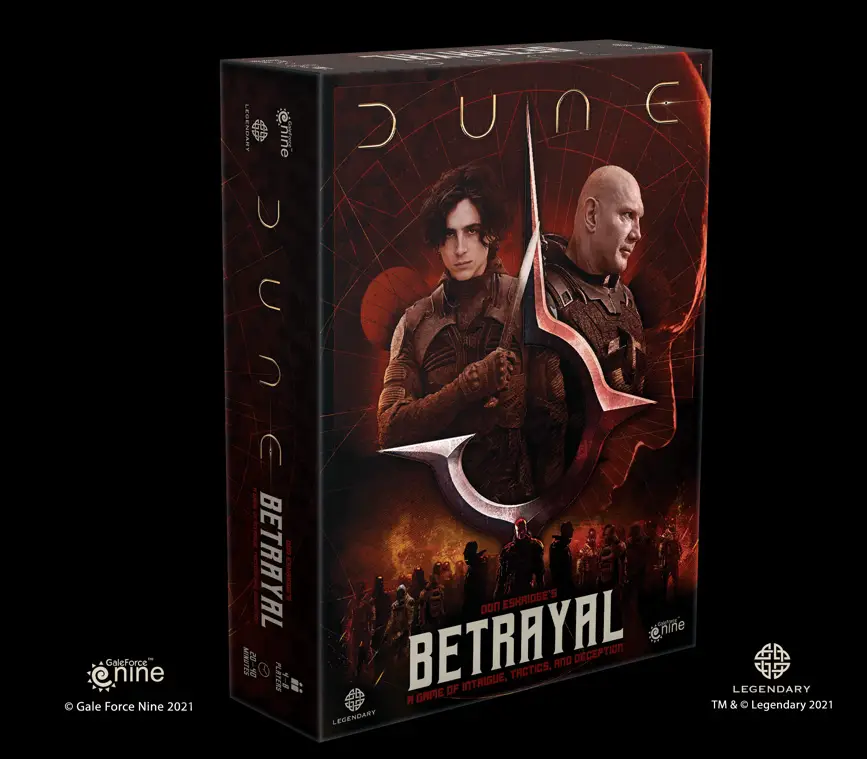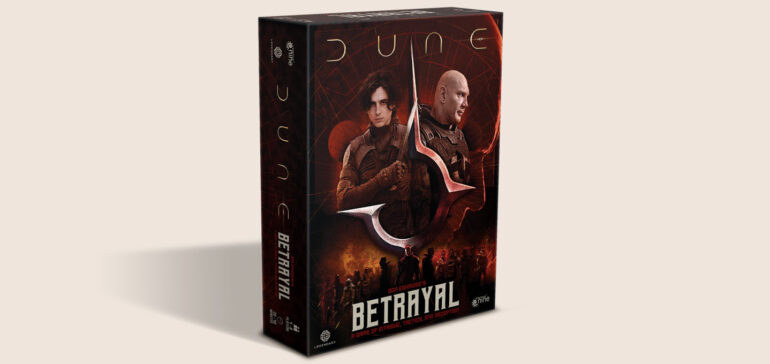Dune: Betrayal from Gale Force Nine is a social deduction-style card game that is easy to learn and aligns well with the theme of feuding House factions from Frank Herbert’s book Dune, and its recent film adaptation Dune: Part One (2021) directed by Denis Villeneuve. Artwork matches that movie, but the game still makes sense to those who aren’t familiar with its story. Even if you’re not particularly good at these kind of info gathering and bluffing games, the game moves quickly and you can still have fun even if you get your guesses wrong and get betrayed!

The game accommodates 4-8 players, and the goal is to score the most points for your side (House Atreides or House Harkonnen) by helping your allies and harming your enemies. The trick is, you first have to figure out which is which.
Gameplay
Each player is given an identity, which they must keep secret until the final round. Identities include Duke Leto Atreides, Baron Vladimir Harkonnen, and fighters—with other characters, such as Lady Jessica and Beast Rabban, being used in games with more players. The only exception to keeping your identity a secret is that the Baron Harkonnen and Beast Rabban get to discover any Harkonnen fighters before the game begins (there is a step where everyone keeps their eyes closed, the fighters raise their hands, and the Baron/Rabban opens their eyes to see who their fighters are).
Dune: Betrayal has six rounds in total: three action rounds, two targeting rounds, and one battle round. The action rounds are where you try to learn information about other players’ identities and/or set yourself up better for the targeting rounds. You take an action card per round and place it face-up in your area so it is publicly viewable. Some let you view other players’ trait cards, which is how you gain information about their identity. Once a card has been viewed, it is turned on its side and considered ‘shielded’ and can’t be viewed by anyone else.
After the action rounds are the targeting rounds. Each player has two target cards (attack and defend) and has to choose which player to play them on. You hope that you have correctly guessed identities enough to know whether to help or harm another player with your card.
The final round is the battle round, where you go around the players and reveal each one’s identity. Then you gain or lose points based on the cards and tokens you have on your character and adjust the scoreboard.

Hands-on Review
This review is based on two four-player games that took around 20 minutes each. We watched Gale Force Nine’s how-to video to help us learn the rules, and I took the role of dealer. In the first game, I was an Atreides Fighter and during the initial phases, I played cards that wouldn’t be used until the later targeting rounds, so I lacked any information about my opponents’ identities. This left me open to trickery by one of my opponents, who seemed to be helping me with his actions so I figured he was on my side. Nope. He was House Harkonnen. I felt very betrayed as we revealed our identities and I discovered I’d helped him!
In the second game, I was a Harkonnen fighter and vowed to be more cautious and gain more intel in the opening rounds. I couldn’t figure out who the Baron was though, and ended up helping the other side again due to misleading table talk. This is an aspect of the game that can make it interesting, and happened more as we got comfortable with the game. Even with my misstep, the Harkonnen side won by one point.
Reaction
The game was fun to play, in part because it wasn’t overly complex and didn’t drag. It felt more like the game 7 Wonders in terms of speed; things happen fast and rounds move quickly. We realized that House Harkonnen start with advantages, both in knowledge and on the score board, so House Atreides really have to work at winning.
Our main critique was that it was hard to get enough information in only three action rounds to guess much about other players’ identities, especially if you choose to get cards that you wait to use in the targeting rounds. We would have liked another action round. This could be different in a game with more players, though.
The theme, ease of learning the rules, and quick-paced nature made this game one I want to play again, even though I am clearly not as skilled in bluffing and spy craft as some of my opponents. I also look forward to seeing how it works with the max of eight players.

Special thanks to Gale Force Nine for providing a copy of the card game for this review.



